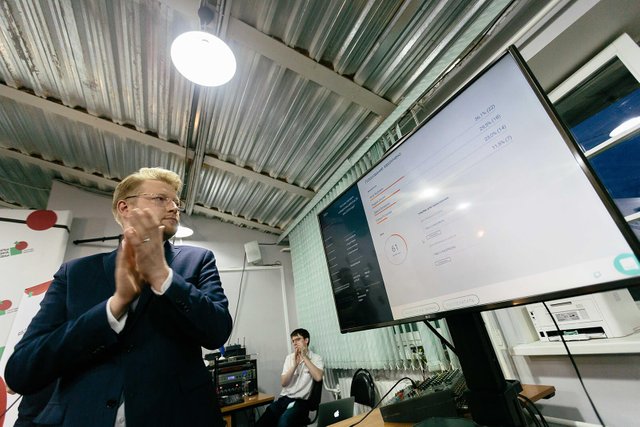
A few weeks ago the Russian United Democratic Party Yabloko held primaries to select its candidate for the Moscow mayoral election. The party staged two rounds of debates between 21 candidates. The winners of each round were chosen via the Polys online voting platform, marking the first use of blockchain technology in Russian primaries.
What is Polys and how does it work?
Polys is an online voting system based on blockchain technology and a product of Kaspersky Lab’s business incubator. The system makes it possible to conduct fair and transparent polls/elections at all levels. With blockchain technology it is impossible to manipulate the voting process by substituting votes or falsifying results; any irregularities will be visible to all the participants.
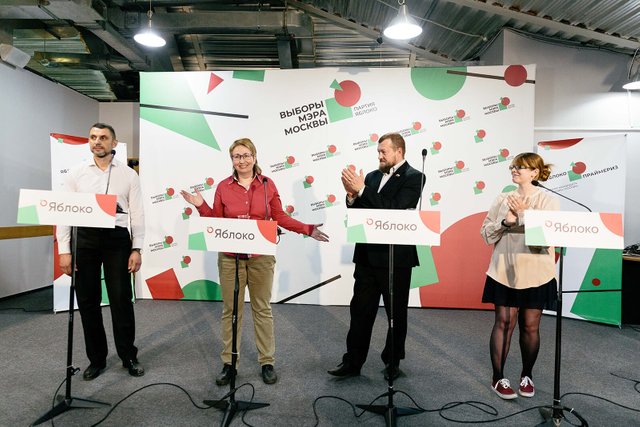
The business logic of the Polys application is based on Ethereum smart contracts, making it possible to create decentralized applications on a blockchain. This approach enables distributed vote processing and eliminates the risk of hacking. Because all the voting information (including results) is distributed across the devices of the network members, a hacker would have to hack all those devices rather than a single server.
Another important element of Polys protection is crypto algorithms. They are used to encrypt intermediate voting results. Crypto algorithms also ensure the anonymity of users. When an encrypted vote is created, a pair of keys – private and public – is generated. The private key remains with the Organizer to decrypt the voting results. Voters receive a public key from the blockchain that encrypts their votes.
How does it work? Well, in the blockchain, there is a smart contract for encrypted voting. A smart contract is associated with the so-called encryption key that is necessary to encrypt and then decrypt votes. After an encrypted vote starts, the public key is published in the smart contract by the Organizer and is made available to verified voters. During voting, the system will automatically load this data and encrypt the votes.
This is necessary to protect voter identity and is especially useful in cases where voters face harassment or the authorities want to neutralize the opposition vote.
Blockchain voting at the primaries
The driving factors behind the party leadership's decision to work with Polys were speed and economy. The need for online voting had existed for some time – for voting in regional offices, primaries, meetings, etc. Since the organization and logistics of offline voting are extremely time-consuming and expensive, it was decided to switch to an online voting system and, thanks to its blockchain technology, Polys was able to provide the right level of reliability and security.
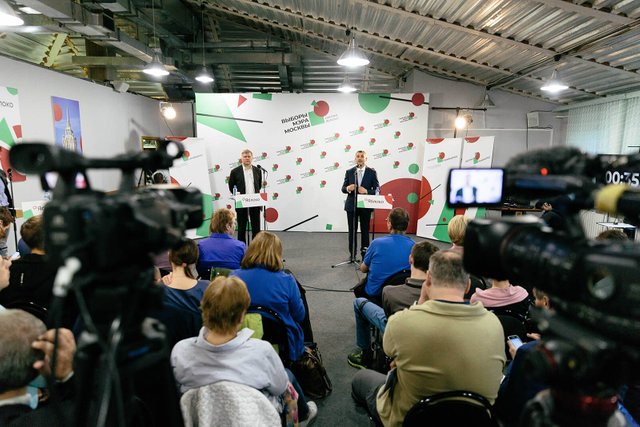
This was the first time in Russian history that blockchain technology was used in political party primaries. It was also one of the first examples in the world of the entire voting process – from the creation of a vote to registration and the casting of votes – being recorded automatically through a smart contract. It differs significantly, for example, from the presidential elections in Sierra Leone, where votes were manually recorded in the blockchain in an experimental process.
Polys specialists deployed a private blockchain in Yabloko’s IT infrastructure. There were two Polys applications working on the blockchain: one for the organizers of the vote, the other for the voters. Those participating in the vote could download the blockchain and make sure it was correct and secure.
The debates were broadcast live on a dedicated YouTube channel. Every morning voters received invitation emails, though there were problems sending out invitations to some domains – not all users received them on time. But Polys specialists offered a simple solution – they sent out duplicate invitations by text message instead.
The Polys online voting system not only simplified and accelerated the process but also demonstrated the potential of blockchain technology to provide simple, transparent and secure voting.
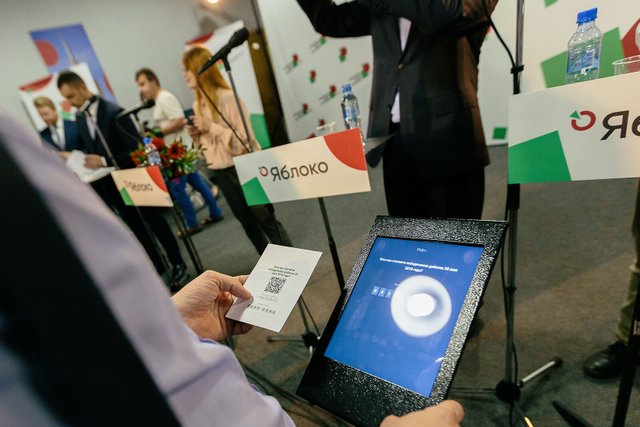
Challenges and wins
At the primaries, the party held two rounds of debates. The first round lasted for five days, with 21 candidates taking part. They discussed urban planning, the economy, as well as city management, ecology and transport. Four candidates were selected to participate in the final round of debates.
Over six days of debates, 58 votes were held, with 8,000 people participating in total. If traditional paper-based voting had been used, it would have been necessary to print out and manually count the ballot papers for 58 separate votes. If a small team of two or three people had been responsible for organizing the elections, printing and counting would probably have taken an average of one hour per vote, meaning approximately 145 man-hours were saved.
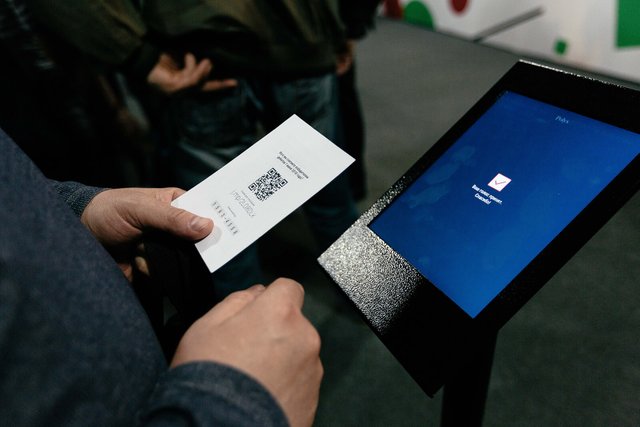
Another important condition laid down by the party leadership was the option of an in-person vote for older voters and those party members who, for one reason or another, couldn’t vote online. The Polys team, therefore, provided offline terminals that were located at the Yabloko office. Unlike the online voters, those voting in-person received printed ballot papers and voted using the terminals.
The ballot was a document with a QR code with a link to the specific vote and an eight-digit code that the voters entered on the terminal to access the voting. Even those that were less proficient technically could cope with this setup and voting proceeded quickly.
The response of voters to the Polys application was positive. Many voters saw the importance of modernizing the electoral process both to reduce costs and to increase transparency and security.
"Using new technologies in party life allows us to forge ahead, develop and attract new supporters," the vice-chair and head of the organizing committee of the Yabloko party primaries said.
Congratulations @polys! You have completed the following achievement on Steemit and have been rewarded with new badge(s) :
Click on the badge to view your Board of Honor.
If you no longer want to receive notifications, reply to this comment with the word
STOPDownvoting a post can decrease pending rewards and make it less visible. Common reasons:
Submit
Congratulations @polys! You received a personal award!
You can view your badges on your Steem Board and compare to others on the Steem Ranking
Vote for @Steemitboard as a witness to get one more award and increased upvotes!
Downvoting a post can decrease pending rewards and make it less visible. Common reasons:
Submit